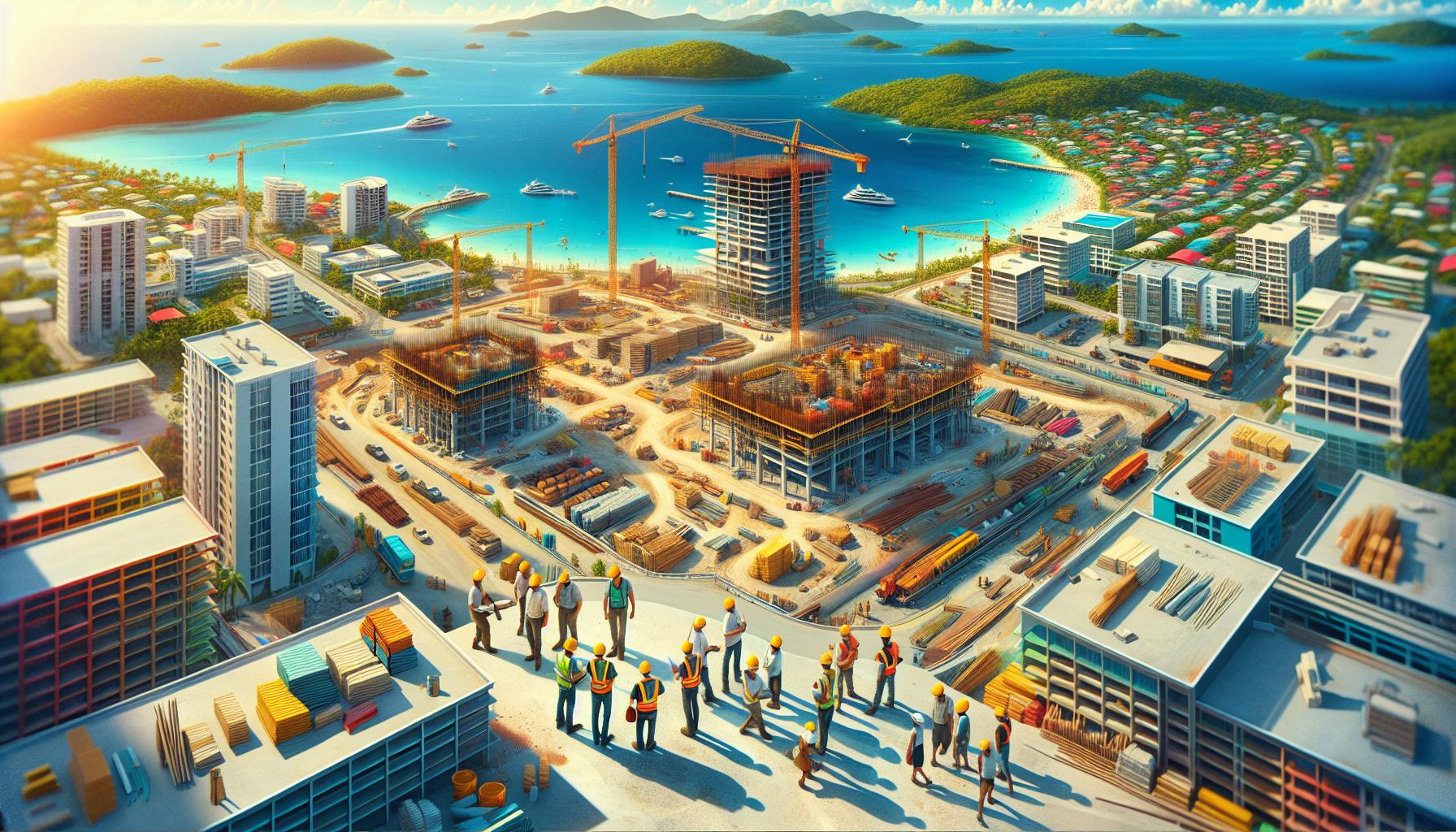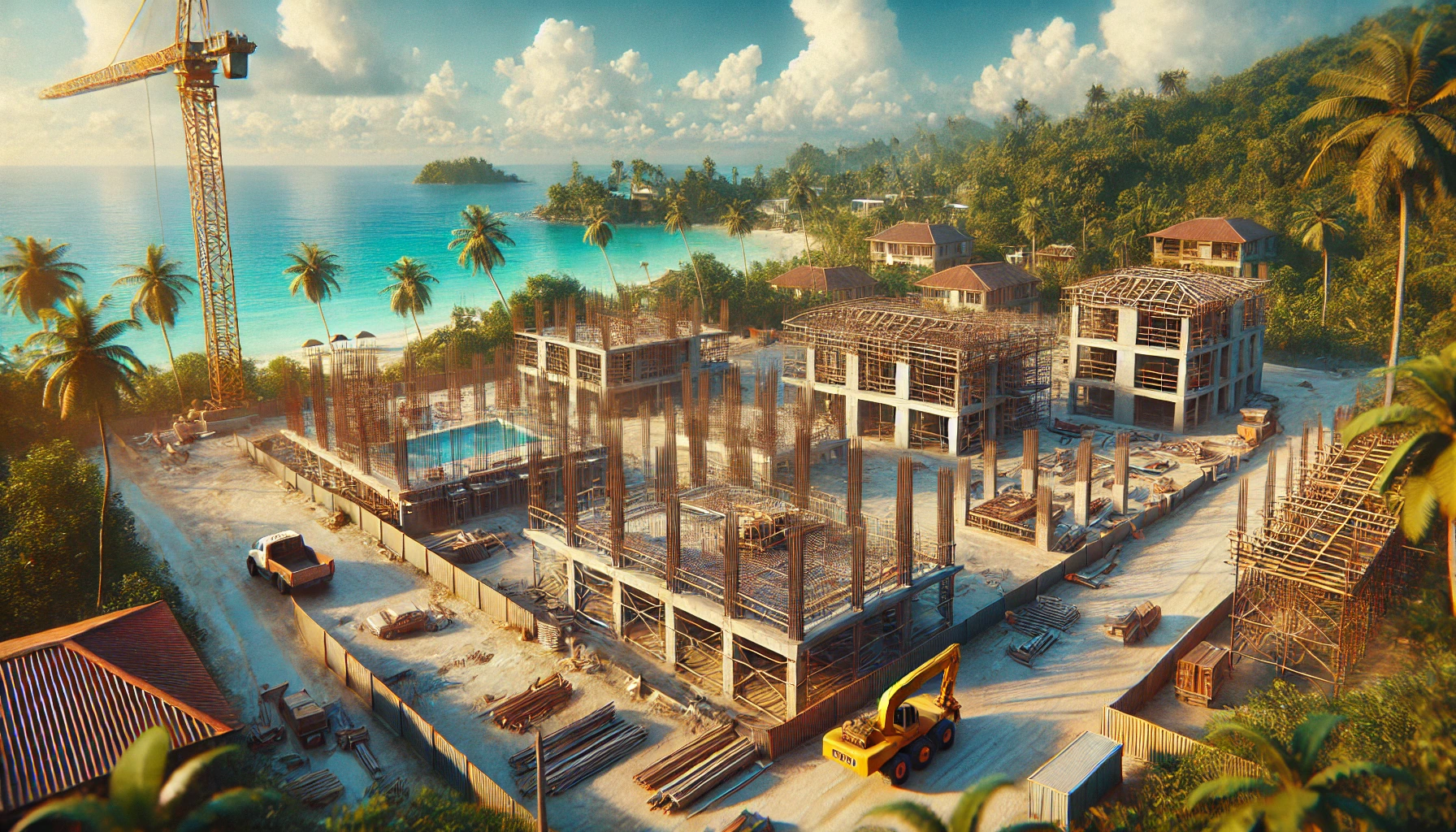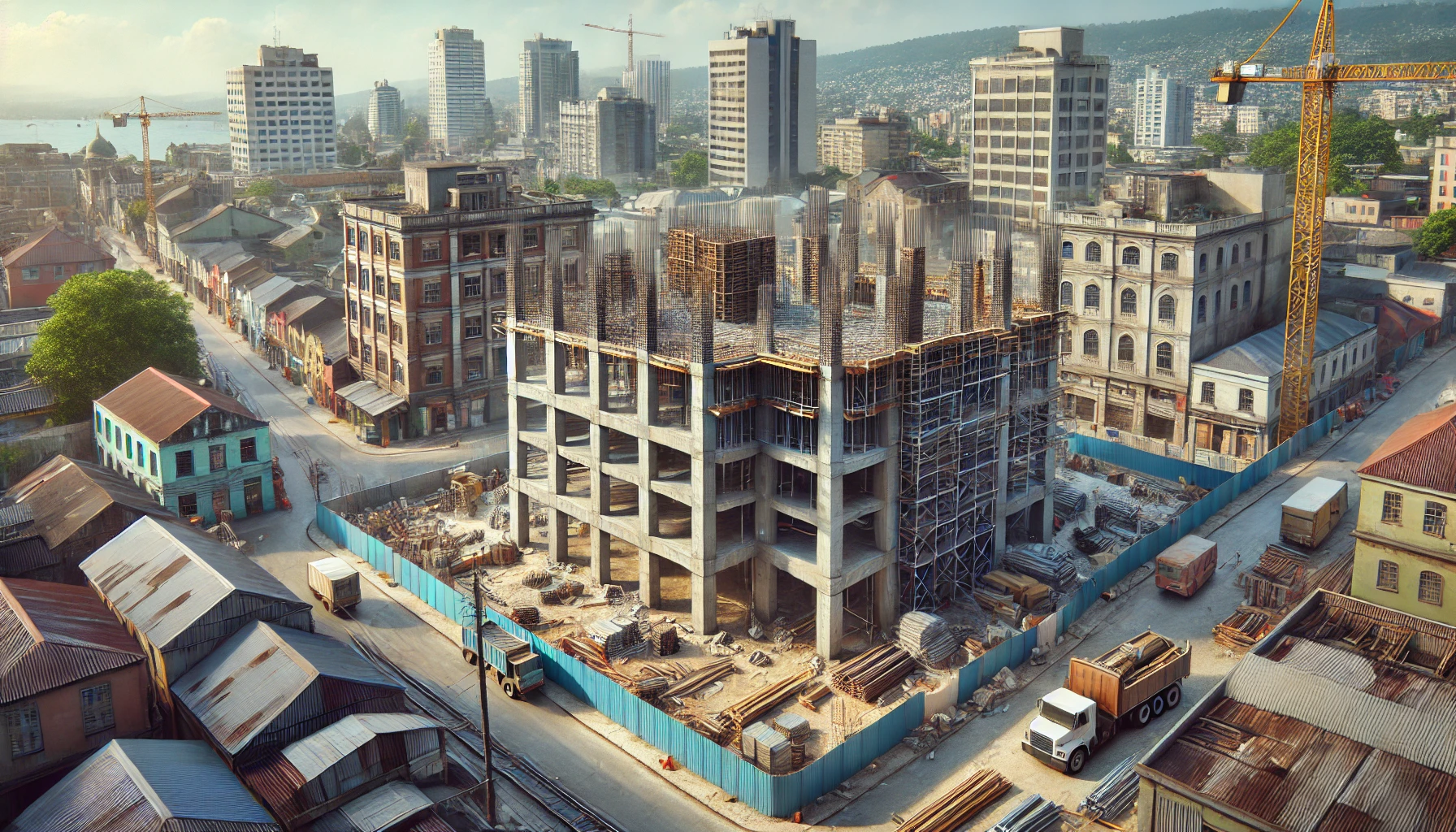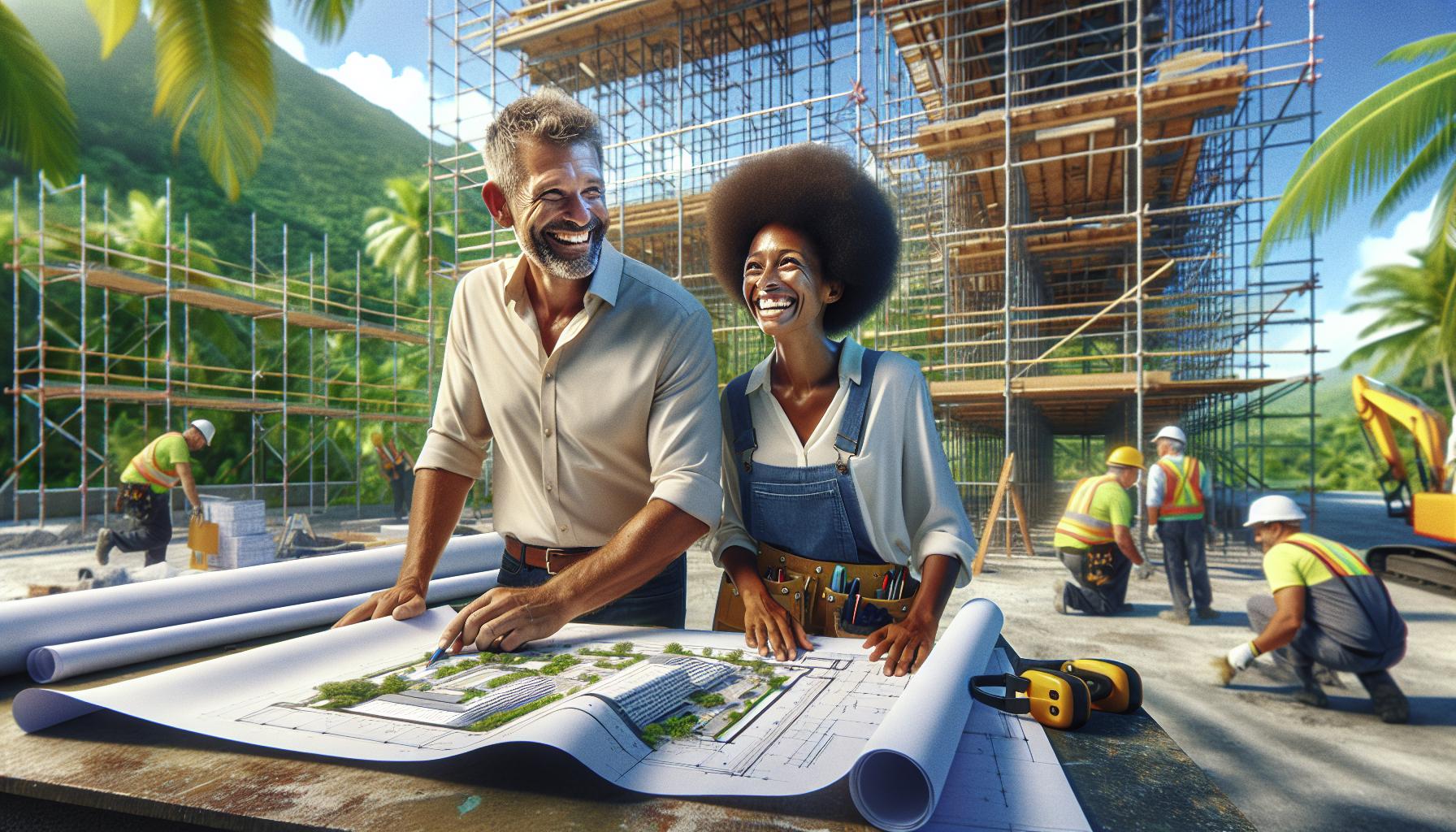When it comes to commercial construction in the Caribbean, the possibilities are as vast as the region’s breathtaking landscapes. From luxury resorts to modern office spaces, the demand for innovative and sustainable construction solutions continues to rise, driven by a booming tourism industry and expanding business opportunities. You’re stepping into a market where creativity meets functionality, and every project reflects the unique charm of the islands.
Navigating the challenges of building in the Caribbean requires a deep understanding of the local climate, regulations, and resources. Whether you’re planning a beachfront development or a city-based commercial hub, you need a construction approach that balances efficiency and durability while embracing the region’s natural beauty. It’s all about creating spaces that thrive in harmony with their surroundings.
As you explore the dynamic world of commercial construction in the Caribbean, you’ll discover how strategic planning and expertise can transform your vision into reality. The future of the region’s infrastructure is yours to shape.
Commercial Construction in the Caribbean: Market Insights and Strategies
Overview of the Market
The commercial construction market in the Caribbean is influenced by tourism and a growing demand for modern infrastructure. Investment trends show sustained interest in properties like resorts, shopping complexes, and corporate offices. Challenges include navigating regional regulations, limited resources, and high construction costs. Applying region-specific construction strategies optimizes project execution and minimizes delays. Climate resilience has become a critical focus due to the area’s susceptibility to hurricanes. Understanding these factors enhances market insights and supports sustainable growth.
Key Sectors: Hospitality, Retail, Office Spaces
Hospitality construction remains dominant, with demand fueled by resorts and boutique hotels catering to increasing tourist arrivals. Retail projects, including shopping centers and mixed-use developments, address growth in consumer activity. Office spaces are also expanding as businesses seek modern facilities to attract global partnerships. Projects in these sectors require advanced construction strategies to balance design quality with environmental considerations. For example, energy-efficient systems and local sourcing are often integrated to align with market expectations.
Importance for Regional Development
Commercial construction plays a central role in supporting the Caribbean economy by generating jobs, boosting tourism, and attracting foreign investments. Modern infrastructure elevates the regional profile, making it appealing for international businesses. Strategically developed projects, such as eco-friendly office spaces or luxury resorts, drive economic growth while preserving natural resources. Strengthening sustainable practices fosters long-term benefits, safeguarding the region’s environment and attracting ongoing development investments.
Strategic Considerations

Optimizing commercial construction projects in the Caribbean demands attention to regulatory compliance, local collaboration, and sustainability. These factors ensure long-term success in a region with unique challenges and opportunities.
Navigating Regulations and Permits
Compliance with regional regulations is critical in Caribbean commercial construction. Each island enforces specific codes for building safety, environmental preservation, and resource management. Adhering to these ensures project viability.
Authorities may require detailed documentation, including environmental impact assessments and zoning permissions. For example, eco-sensitive areas often involve stricter regulations, adding complexity to approval timelines. Understanding these local requirements helps avoid delays.
Focus on climate-resilient construction practices to meet hurricane and flooding codes. Consulting experienced legal and regulatory advisors strengthens your ability to navigate these processes efficiently. Staying compliant enhances project approval rates while protecting your investment and the Caribbean economy.
Leveraging Local Partnerships
Partnering with local contractors, suppliers, and experts improves overall project efficiency. Their knowledge of resource availability, climate conditions, and regional standards shortens construction timelines.
Sourcing locally reduces transportation delays and minimizes costs, especially for heavy materials like concrete. Collaborative purchasing agreements with local suppliers also improve long-term supply chain reliability.
Engaging local architects and engineers familiar with commercial real estate trends ensures structural designs align with functional needs while respecting local aesthetics. Strong partnerships drive high-quality outcomes and promote regional economic integration, benefiting both your project and the local economy.
Adopting Sustainable Practices
Sustainability is a cornerstone of successful construction strategies in the Caribbean. Eco-friendly designs attract more investors to projects like hotels and shopping centers while aligning with global carbon reduction goals.
Incorporating renewable energy systems, such as solar panels and wind turbines, reduces operational costs and improves energy efficiency. Sustainable water management techniques, including rainwater harvesting and graywater recycling, ensure resources remain abundant despite high demand.
Utilize materials that withstand harsh conditions, such as salt-resistant coatings and hurricane-grade windows, to extend building longevity. These practices foster long-term environmental preservation while strengthening market insights for future growth opportunities in the region.
Challenges and Opportunities

Supply Chain and Infrastructure Issues
Navigating construction projects in the Caribbean often involves supply chain and infrastructure challenges that can affect timelines and budgets. Limited local manufacturing capacity increases dependence on imported materials like structural steel, cement, and advanced HVAC systems. This dependency results in higher costs and potential delays due to customs processes and shipping.
Transportation networks on some islands may complicate the delivery of materials to remote or underdeveloped areas. Inadequate road systems or port facilities can restrict access to construction sites, impacting project schedules. Additionally, power supply inconsistencies can create delays in heavy equipment operation or other energy-reliant tasks.
Addressing these issues requires robust construction strategies, such as engaging local suppliers for available resources. For imported materials, collaborating with logistics partners to streamline delivery processes reduces delays. Enhancing on-island infrastructure where possible can also support smoother project execution, ensuring optimal outcomes in the commercial real estate sector.
Growing Tourism and Investment Trends
Tourism continues to drive commercial construction demand in the Caribbean, particularly for hotels, resorts, and entertainment venues. Increased visitor numbers encourage governments and investors to enhance infrastructure, developing airports, ports, and related transportation systems. This expansion creates significant opportunities for contractors with expertise in large-scale projects.
Foreign investments in commercial real estate are rising due to incentives like tax breaks and the region’s reputation as a global tourist destination. Office spaces, retail hubs, and mixed-use developments are growing sectors supported by expanding business environments. These trends showcase the importance of strategic construction planning to meet the evolving market demands.
Sustainable construction strategies attract eco-conscious investors prioritizing renewable energy and green designs. Incorporating these elements enhances market insights and aligns with growing environmental expectations. The Caribbean economy benefits from these developments, creating a robust cycle of tourism, investment, and construction growth.
Case Studies

Successful Hotel and Resort Projects
Commercial construction in the Caribbean’s hospitality sector showcases innovative designs and robust construction strategies. A notable example includes a luxury eco-resort in the Bahamas integrating renewable energy systems and hurricane-resistant structures. These features cater to sustainability demands while addressing climate challenges. Another example is a high-end beachfront hotel in Barbados prioritizing local materials and labor, reducing import reliance and fostering economic growth.
Hurricane-proof designs and premium amenities characterize large-scale projects in tourist hubs such as Jamaica and the Dominican Republic. These developments balance aesthetic appeal with climate resilience, meeting growing tourist expectations and boosting the Caribbean economy.
Retail and Office Space Success Stories
Retail and office space projects reveal strategic responses to market insights and operational demands. A modern shopping mall in Puerto Rico incorporates energy-efficient technologies and spacious layouts to align with sustainability goals and attract diverse tenants. Similarly, a commercial office park in Trinidad opts for mixed-use spaces featuring co-working offices, retail stores, and green areas, maximizing functionality and tenant satisfaction.
In the Cayman Islands, a retail hub leverages adaptable designs for future market shifts, enhancing long-term viability. These examples highlight how adaptive construction strategies elevate functionality and sustainability in the region’s commercial real estate market.
Conclusion

Navigating the commercial construction landscape in the Caribbean requires a blend of strategic planning, local expertise, and a commitment to sustainability. By understanding the unique challenges and opportunities the region presents, you can create projects that not only meet market demands but also contribute to long-term economic and environmental goals.
Whether you’re building resorts, retail spaces, or office complexes, focusing on innovation, collaboration, and resilience will set your project apart. The Caribbean’s vibrant market offers immense potential, and with the right approach, your construction endeavors can thrive while supporting the region’s growth and preserving its natural beauty.